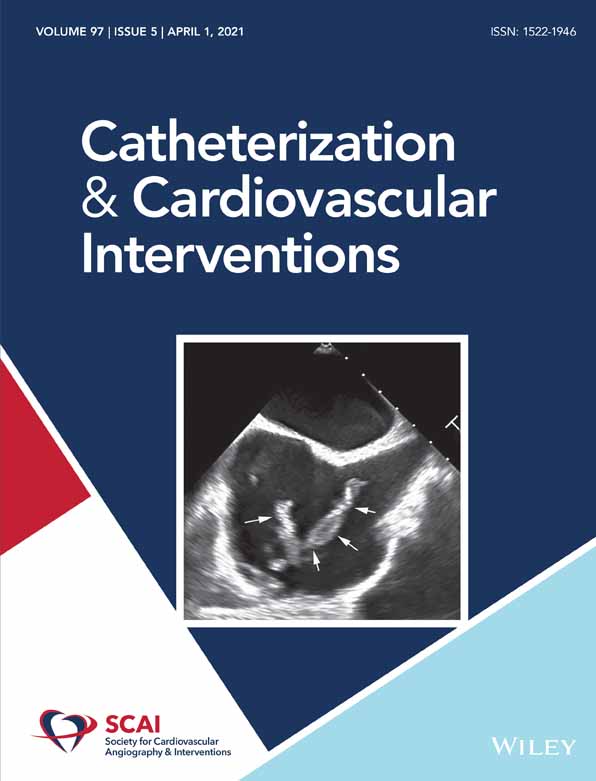Single stick access using a VA-ECMO arterial return cannula for coronary intervention in cardiogenic shock
Abstract
Use of veno-arterial extracorporeal membrane oxygenation (VA-ECMO) is growing exponentially for cardiogenic shock and cardiac arrest, and many of these patients require percutaneous coronary intervention (PCI). In some cases, radial arterial access may not feasible among patients with peripheral vascular disease or if larger diameter guide catheters are required. Further, VA-ECMO is commonly used in combination with an intra-aortic balloon pump or Impella, thereby limiting vascular access options and increasing the risk of vascular complications including bleeding and limb ischemia. For these reasons, new approaches to perform PCI without the need for an additional arterial puncture are required. We describe a case of a 70-year-old man with cardiogenic shock referred for high-risk PCI while supported with VA-ECMO and an Impella CP and illustrate a novel method for single-stick access for PCI through the return cannula of the VA-ECMO circuit.
CONFLICT OF INTEREST
C.S.H., C.D.D., and R.G.: report no conflicts of interest to disclose. N.K.K.: receives consulting/speaker honoraria and research funding from Abbott, Abiomed, Boston Scientific, Medtronic, LivaNova, MD Start, and PreCARDIA.




